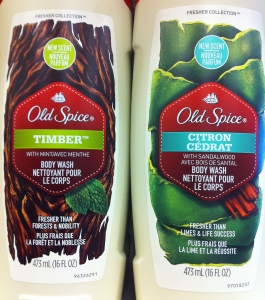Folks who see equality as a good thing readily agree that gender roles are discriminatory and oppressive. Despite this, it appears that many people have difficulty applying this knowledge to everyday situations. Perhaps this is because it’s far easier to agree with concepts when they’re presented as straightforward and conciliatory rather than as confrontational or requiring critical analysis. Acknowledging the harm caused by gender roles often incites derision and dismissal, which speaks to the reality that these tropes are status quo. They’re so ingrained in our culture that overcoming them is a constant struggle.
Gender roles stretch across the globe and dictate not only how females should behave but also how males should behave. The key difference, however, is that whereas males are punished for non-conforming, females are both punished for non-conforming and made to be subordinate when we conform through a host of expectations designed to make us passive and submissive. No matter what we do we’re set up to fail because not only are we never dominant like males are, but we’re never even equal in the gender hierarchy.
Patriarchy is the most oppressive system in the world. Save for whatever minute percentage of people who might live in matriarchal or equal circumstances, patriarchy controls everyone, impacts everyone negatively, and subordinates half of the world’s population. When we throw in the additional trauma of discrimination based on race, age, socioeconomic status, sexual orientation, and every other form of oppression, it’s a miracle that people who are marginalized and oppressed multiple times over are so resilient.

Children have a tough time trying to make sense of this when they realize that the things they’re supposed to like and do don’t always match up to their own interests and personalities. They don’t yet have the experience or analytical tools to understand that there isn’t anything wrong with them and that the source of this cognitive dissonance is a system that was deliberately concocted well before they were born. This is mass psychological torture. It’s not up to kids to figure this out. It’s up to parents, teachers, relatives, and other adults. This is not a personal problem, a family dispute, or an identity crisis first and foremost. It’s a social issue. A moral issue.
Yesterday, it was reported in the news that a seven-year-old child was banned from using the girls’ washroom at a Catholic school in Edmonton, Alberta. The child identifies as a transgender girl.
The parents say they knew from the beginning that something was different about their child…
“As soon as she could speak, she would articulate that she is a female and would gravitate towards feminine objects,” the mother said.
“I just told my mom I felt like a girl,” the seven-year-old recalled.
That’s when her parents say they knew their child wasn’t “a boy who liked girl toys — she was a girl who had a penis.”
This is where I have to call a time out. What exactly is meant by feminine objects? Females have specific sex characteristics, so it makes sense to describe females and their unique physiology as feminine; but how are inanimate objects feminine? What about them is in any way female – or male, for that matter? For example, in an episode of Food Network’s Southern at Heart, Damaris Phillips describes her coconut lavender macaroons as feminine. On its face this statement doesn’t make any sense but the viewer understands what’s implied; something about these cookies reminds her of abstract qualities she associates with the female sex. This is the essence of gender and it’s where the problem starts.
It seems highly tenuous that an individual at the age of seven is at a stage in their life where they can elucidate the difference between being a boy who likes “girl toys” and actually being a girl. Children as young as four years old are now being asked to declare their gender identity. So what does it mean to think or feel like a boy or a girl, exactly? How does a boy who is learning to speak know enough about language – about anything – to know that they’re in fact a girl? Surely we should approach cases of potential gender dysphoria in children with extreme caution given their lack of maturity. I don’t know that anyone should be comfortable trusting the judgement of a child on a subject so complex it makes the heads of educated adults spin.
I’ve thought about what I would do if this were my child. Here’s what I’m thinking. A boy who likes stereotypically “feminine” things or has stereotypical “feminine” qualities is simply a boy who doesn’t conform to how society has decided boys are supposed to be. That doesn’t make him female. Associating traits like sensitivity or vivaciousness and an interest in dresses, pretty things, dance, soft colours, dolls, etc. with being female does nothing except reinforce gender stereotypes. There is absolutely no logical basis for associating the things our society identifies as feminine to the condition of being female.
Being female means being a member of the female sex and no doctor will deny that being a member of the female sex means having a female anatomy, which necessarily involves primary and secondary female sex characteristics, and absolutely includes a vagina. Whether any given female can become pregnant is irrelevant; a properly functioning reproductive system is required for pregnancy and gestation and any human being who’s ever been born was given birth to by a female. Being female cannot mean having a penis.
Of course, no one is disputing that the child is of the male sex, so what we’re left with is the question of what their gender is. While sex and gender are often conflated, they are separate concepts.
This is where what is considered controversial to some people is simple for others. If you believe that there is in fact no basis for thinking that being male must involve expressing a prescribed masculinity and being female must involve expressing a prescribed femininity, then you are gender critical. While gender criticism is often described as a central element of radical feminism (radical feminists are gender abolitionists, to be more precise), it’s also key to feminism at large because it’s impossible to challenge sexism without challenging gender stereotypes.
It’s one thing to acknowledge that discrimination against females exists but in order to challenge this discrimination we need to understand how and why it manages to organize different cultures, geographies, classes, and generations. In order for an ideology to endure so many barriers of time and space it must consist of a subliminal and self-perpetuating set of beliefs. Every oppressive system assigns unequal value to different groups of people. This requires that we develop a set of attitudes and assumptions about them that serve to make them unworthy relative to another group. At the same time, these people, should they use their voice or exercise any degree of autonomy or power, are seen as a threat and are summarily ignored, silenced, threatened, harmed, and murdered. How else can we explain white American police officers killing black women and men in cold blood and in plain view time and time again? How else can we explain the alarming number of missing and murdered indigenous women and girls in Canada, which Stephen Harper shrugged off as not “really high on our radar”, the blame for which indigenous men are expected to shoulder all on their own with no consideration of the effects of colonial patriarchy?
How else can we explain why discrimination persists despite the fact that many people who discriminate do so unintentionally and unknowingly? Patriarchy, like white supremacy, only requires that people with privilege go about their daily lives. That’s why even those who are aware of these systems and try to avoid contributing to them end up making mistakes. This is what it means for oppression to be systemic. To be systemic is to be effective.

Growing up, I was very close to my older brother and was surrounded by boys more so than girls. This influenced my taste in music, my language, my sense of physicality, etc. I did all sorts of “masculine” things as well as “feminine” things and it never once crossed mine or my parents’ mind that this called into question my identity as a girl or a female. I have no doubt that the males who surrounded me rubbed off on me but they weren’t the way they were because of something innate. It was because they were raised to be that way from infancy as a result of the school curriculum, teachers, spiritual leaders, parents, friends’ parents, advertizing, books, movies, etc. It’s telling that this process actually hedged the female socialization that I was simultaneously subjected to. I also have a mother who exhibited femininity in many ways, but not consistently – and this didn’t escape my notice. My mom could be fairly tough with me and I saw that she was brave, outspoken, and did the same hard labour as her male co-workers. She told me about some of the misogynistic things they would say and do. It’s no wonder we’ve always shared a love of Bette Davis movies. Overall, the message was clear: never let people push you around and never let a man tell you that you’re inferior. I wouldn’t be the strong, independent woman I am today if I hadn’t had her example to follow.
Not long ago, I was taking a walk with my aunt, her 10 year old daughter, and two male cousins of around the same age. As she watched them my aunt said to me, “Boys and girls are so different.” I responded, “That’s because we tell them they are.” Silence followed. Later that evening I was teasing her husband and my brother for comparing their scars, which they seemed to think were badges of honour. To me, they just looked like reminders of stupidity. I remarked that they were lucky they didn’t have to go through the shit women do, neither through stupidity nor by choice, simply for being born with a reproductive system destined to hemorrhage every month unless it was transformed (usually accidentally) into an incubator that would eject a baby way too big for the hole it’s supposed to come out of. Whatever the method of delivery, I added, a woman gets ripped open, leaving a scar that will rival anything they can dream of bragging about. At this point my younger cousin – bless her heart – added that girls have to suffer the job of doing their hair and make-up too. “That’s your choice!” my brother countered. And therein lies the difference between sex and gender.

Femininity and masculinity are arbitrary social constructs. Each of us should be free to express whatever traits come naturally to us without having to worry about how they supposedly relate to our anatomy. If we’re really concerned about equality and the well-being of children who will become adults who make important decisions, this is what we need to teach them.
Going back to the article about the transgender child:
The family has found an ally in Catholic school trustee Patricia Grell, who has publicly criticized the administration’s decision.
“I’m really worried about the impact of this stance we’ve taken on that child,” Grell said. “I’m very worried about that child’s mental health and wellbeing.”
I’m worried too. I’m worried that adults can’t seem to let children like what they like and act how they act regardless of their sex and leave it at that. There’s nothing wrong with these kids. They don’t need to change. Our society does.











